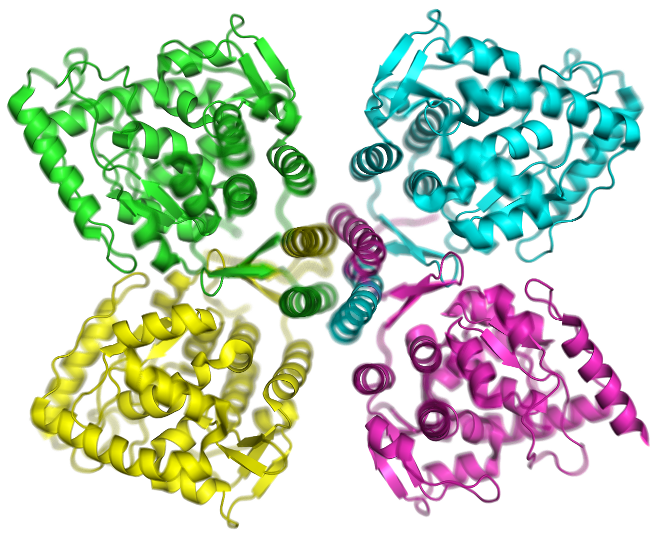Tyrosine hydroxylase
Tyrosine hydroxylase (TH) is a tetrahydrobiopterin (BH4) dependent enzyme that catalyzes the rate limiting step in the synthesis of catecholamine neurotransmitters and hormones and is a marker for dopaminergic neurons. The research interests of our group include investigation of structural determinants for function, regulation and stability of tyrosine hydroxylase, as shown in recent contributions in this area [1-3].
Hovedinnhold
Mutations in the TH gene are associated with tyrosine hydroxylase deficiency (THD), which manifests phenotypes varying from Dopa-responsive dystonia to complex encephalopathy with perinatal onset. THD also constitutes a useful disease model for the understanding of early parkinsonism and other neurological disorders, including the classical forms of Parkinson’s disease (PD). We are involved in studies of pathogenic mechanisms of THD and genotype-phenotype relationships [4]. Furthermore, development of therapeutic solutions for THD, such as pharmacological chaperones and enzyme replacement therapy, are an active area of investigation in our group [5].
These projects are supported by grants from the Research Council of Norway (Program FRIBIO) and Helse Vest, and are integrated in the priority areas of the KG Jebsen Centre for Research in Neuropsychiatric disorders.
Selected publications
1. Kleppe, R., et al., Mol Cell Proteomics, 2014. 13(8): p. 2017-30.
2. Skjevik, A.A., et al., J Mol Biol, 2014. 426(1): p. 150-68.
3. Teigen, K., et al., Curr. Med. Chem., 2007. 14(4): p. 455-67.
4. Fossbakk, A., et al., Hum Mutat, 2014. 35(7): p. 880-90.
5. Calvo, A.C., et al., J. Neurochem., 2010. 114(3): p. 853-863.
